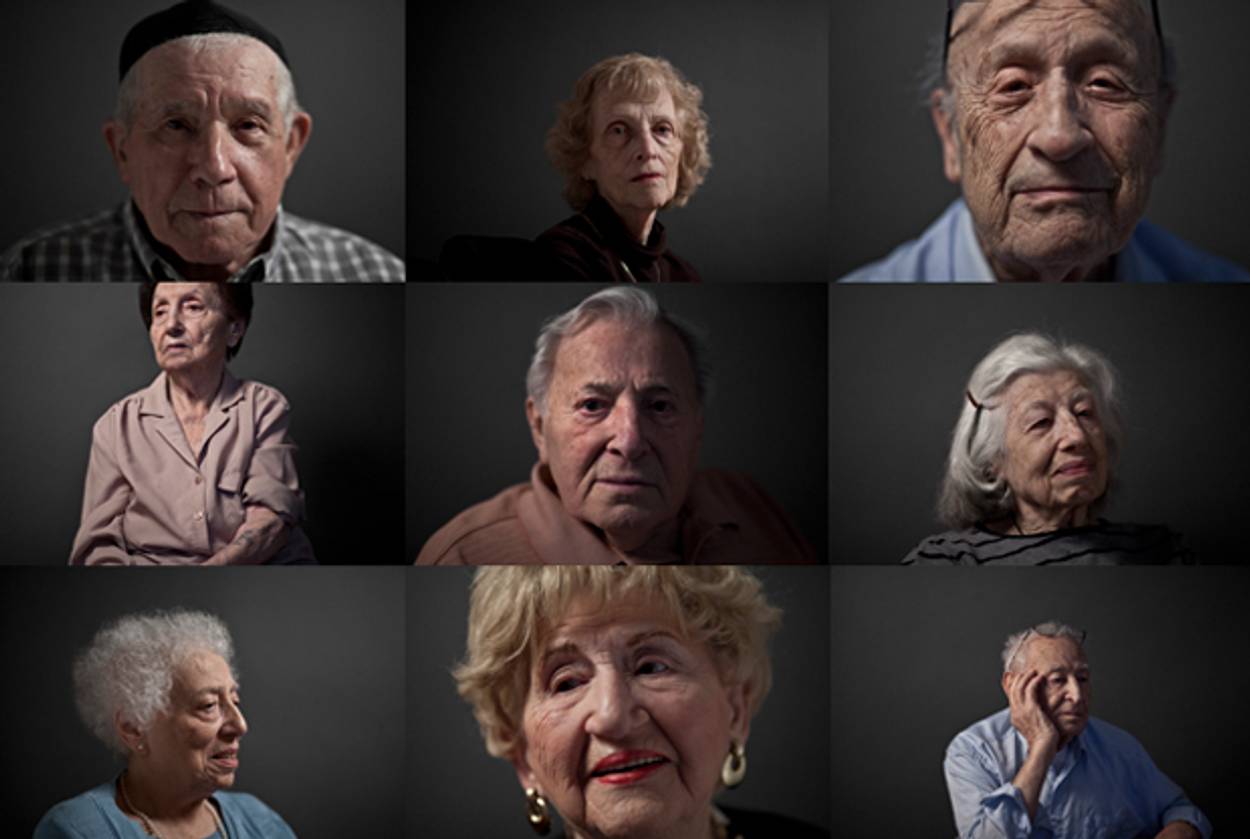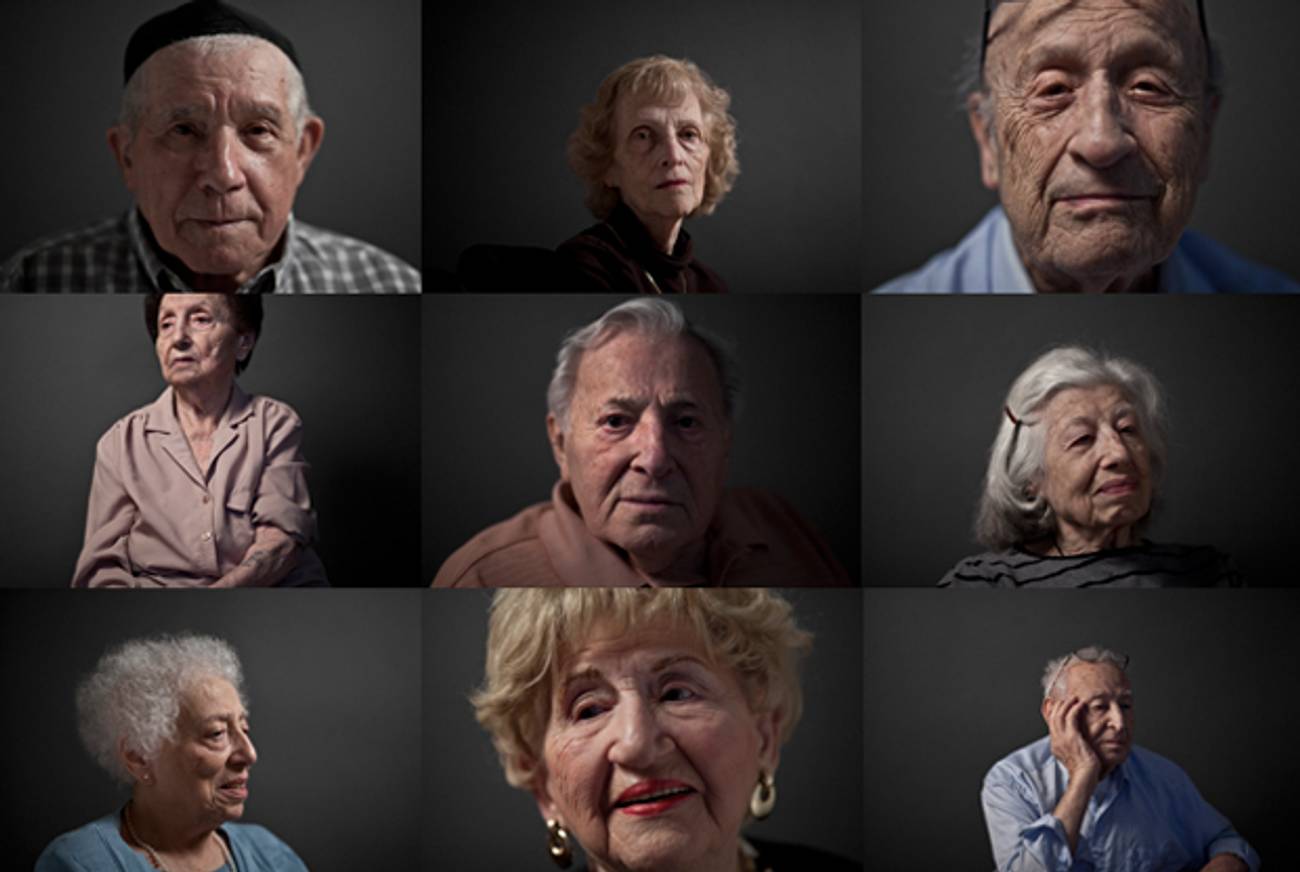Read Students’ Letters to Holocaust Survivors
A seventh-grade class responds to our feature on survivors living in poverty




In January, Tablet published a multimedia presentation on the lives of nine Holocaust survivors living in difficult conditions in the New York area. Many of our readers wanted to know how they could help. But one reader, Carolyn Martone, was moved to respond in another way. She is a teacher at the Cathedral Chapel School in Los Angeles, and she’d recently started her 7th-graders on their study of the Holocaust, reading Elie Wiesel’s Night together and visiting the Museum of Tolerance.
Our article helped give “a voice and a face” to the people they were reading about, she said—so much so that Martone decided to have her students write letters to the survivors. In anticipation of Yom HaShoah on Sunday, following are a few uncorrected excerpts from their 30 letters, which were sent along to the addressees.
Dear Frances Irwin,
We have learned how many of the survivors who are currently alive like you. We have learned how many of the survivors in the U.S are living in poverty. I think the government should open a retirement center for the survivors, like the ones for the elderly. But this one should have the most caring people inside to take care of the survivors. … I wish you the best of luck of continuing your life and living it to the fullest.
Sincerely,
Martin Chun
Dear Katherine Noire,
My class and I are currently learning about the Holocaust and we are reading a memoir of another survivor. It’s called Night by Elie Wiesel. I have read that most holocaust survivors are having trouble providing basic needs for themselves. I’m glad to hear that you are being well taken care of and you aren’t in much need as others.
Sincerely,
Eva Love J. 7th CSS
Dear Mrs. Noire,
My name is Josef Cabanca. I live far away from you. I live in Los Angeles, California. I am Filipino. My grandfather lived in the Philippines during World War II. But I was young and it didn’t occur to me to ask him about his experiences during World War II. He passed away a few years ago, and I can’t ask him now.
Sincerely,
Josef Cabanca
Dear Mr. Ratz,
… I found out that your brotehrs were shot and killed in 1941, and I am truly sorry for your loss. The nation really has a lot to offer to the victims of the Holocaust. … We are the last generation to actually “be a big part” of the Holocaust. Basically, by the next generation, the survivors of the Holocaust will be gone and there will be no living witness to describe the gruesome events that happened.
Sincerely,
Grace Kim
Dear Mr. Goldsmith,
Since I was a little girl I’ve known that some of my ancestries from my mom’s side originated from Russia and Poland. But my grandparents always told me that their parents didn’t like talking about it much. Now I understand why. I know that I don’t klnow you, but for some reason I feel like we are connected. I admire your bravery and strong will. I pray for your lost loved ones and I bow my head to you.
Sincerely,
Gianna
Dear Miriam,
I am very inspired by your story. The fact that you rejoice, enjoy, and love each day is just beautiful. Even when people like you would’ve lost hope, you stayed positive. I hope that I can inherit that trait. … I will never be able to understand what you went through. I can never truly relate to those types of memories. But I can relate to loss of your spirit.
Sincerely,
Shelby Walton
Dear Mr. Hymie,
I am sorry you lost the book you were writing about your experiences in the war. I agree with your children and grandchildren that you should write it again. I also understand how painful it will be for you to think back about those terrible days. If you ever do write again the book, I would like to buy a copy.
Sincerely,
Isaiah James Pereira
Previous: How You Can Help Holocaust Survivors Living in Poverty
Related: Soon There Will Be No More Survivors
Stephanie Butnick is chief strategy officer of Tablet Magazine, co-founder of Tablet Studios, and a host of the Unorthodox podcast.